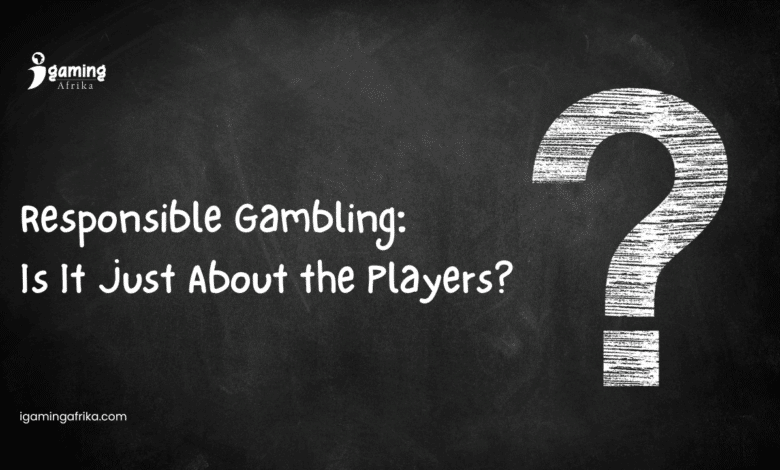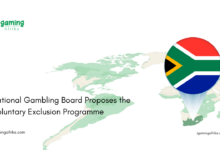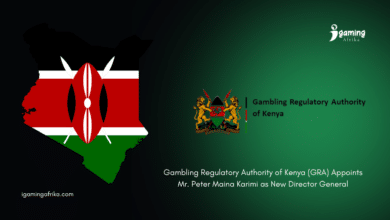Responsible Gambling: Is It Just About the Players?

When we talk about responsible gambling, most people immediately think about protecting players. That makes sense as gambling can lead to addiction, heavy debt, ruined relationships, and even mental‑health crises. But the story does not end there. The gambling industry is a delicate ecosystem, and keeping it healthy means looking beyond just the players. Licensed operators, regulators, and the integrity of the system all play a role in making sure the industry works for everyone.
Licensed operators are the backbone of a healthy gambling industry. They follow strict rules, invest in secure technology, and uphold fair play. Yet, the biggest threats often come from outside the regulated space. Illegal operators, unlicensed online platforms, and fraudulent sites exploit both players and legitimate businesses.
According to recent reports in South Africa, around 62% of all online gambling activity occurs on unlicensed platforms, diverting over R50 billion in revenue offshore every year. There are more than 2,000 unlicensed sites actively targeting South African users, with roughly 16 million people engaging with these platforms in the past year alone.
Insights from Industry Leaders
Robin Bennett, Head of Department, Regulatory and Compliance at the Western Cape Gambling and Racing Board, recently shared his thoughts on LinkedIn, reminding the industry that protection isn’t just about players. He emphasized that licensed operators and regulators form the backbone of a trustworthy gambling ecosystem. As he put it, “Safeguarding licensed operators and maintaining regulatory credibility are critical for the long-term sustainability and integrity of the gambling sector.”
Bennett also highlighted that responsibility is shared across the ecosystem. “While regulators play a key role, operators and players must also act responsibly to ensure a fair and sustainable gambling ecosystem,” he said. In his view, operators are not just service providers but stewards of a system that affects millions of consumers, while players themselves carry the responsibility to engage within their means. This collective approach, he argues, is essential for maintaining public trust and ensuring the industry can grow responsibly.
Adding to the conversation, Laurence Michel, CEO at Betway Africa, underscored the importance of accountability and consistency in regulation. He argued that illegal operators should not be allowed to “apply for licenses when it suits them”, warning that selective enforcement undermines the credibility of the entire system. Michel also pointed out the uncomfortable reality that some national sporting bodies continue to accept sponsorships from unlicensed operators, despite the clear risks this poses to the industry’s integrity. He urged authorities to pursue illegal operators with the same vigor they use to police licensed ones, noting that a fair and transparent approach is vital if the market is to remain credible and competitive.
Jonathan S., Head of Commercial Finance at ParentPay Group, raised serious concerns about affordability in gambling, noting that some players are able to deposit five or even ten times their salary in a single month without sufficient checks. He argued that gambling deposits should be treated “exactly like applying for a loan, with proper credit checks and clear affordability limits.” Jonathan added that while technology and data already make this possible, “the problem is not the tools but the will as no operator wants this because their EBITDA will go backwards.”
Jonathan’s comments tap into one of the most pressing challenges facing the modern gambling industry. That is the gap between regulation and real-life player behavior. His call for pre-deposit affordability checks reflects a growing belief that responsible gambling must start long before the first wager is placed. By treating gambling deposits more like financial transactions subject to affordability assessments, he argues, operators could prevent harm before it happens. It is a practical, data-driven approach that aligns with global trends, particularly in markets like the UK, where affordability and player risk profiling are becoming regulatory priorities.
Speaking exclusively to iGaming AFRIKA during his feature in Issue 5 of iGaming AFRIKA Magazine, Duncan Garvie, Founder and Trustee of BetBlocker, reflected on what drives his commitment to player protection. “Too often, the people most affected by gambling harm are the ones who can least afford help,” he said. “That’s why BetBlocker will always be free. No one should have to pay to regain control of their life.”
He spoke passionately about the importance of inclusion and accessibility in addressing gambling harm across Africa, stressing that support tools must reflect the realities of the people they aim to help. “When someone is in crisis, even small barriers like an unfamiliar language can stop them from getting help,” he explained. “If we can remove that barrier, we give people hope.” Garvie believes that true progress in responsible gambling begins with understanding local contexts and ensuring that every individual, regardless of language or background, can easily access the support they need.
Protecting the Whole Ecosystem
Player safety is important, but it’s just one part of the bigger picture. Education, awareness, and access to responsible gambling tools help players engage with gambling as entertainment rather than risk. Yet industry integrity and regulatory credibility matter just as much. The South African Bookmakers’ Association (SABA) has recently urged stronger safeguards for vulnerable groups, including social and student grant recipients, who are often targeted by illegal online operators. Working alongside government and banking partners, SABA is pushing for data-led protections such as payment blocking and deposit monitoring to stop the misuse of grant funds.
Meanwhile, authorities like the National Gambling Board continue to acknowledge broader challenges. The Board notes that the industry faces structural issues, including slow transformation, high market concentration, limited access for new entrants, and persistent enforcement gaps. Protecting the gambling industry means tackling all of these issues together, ensuring fairness for players and long-term sustainability for the market.
A Shared Responsibility
For gambling to thrive safely, everyone has to play their part. Regulators must enforce rules fairly and consistently, operators need to uphold compliance, fairness, and responsible gambling practices and players should gamble responsibly within their means. When all of this happens, everyone benefits, that is, players enjoy fair and safe experiences, operators compete in a trusted market, regulators maintain credibility, and public confidence grows.























